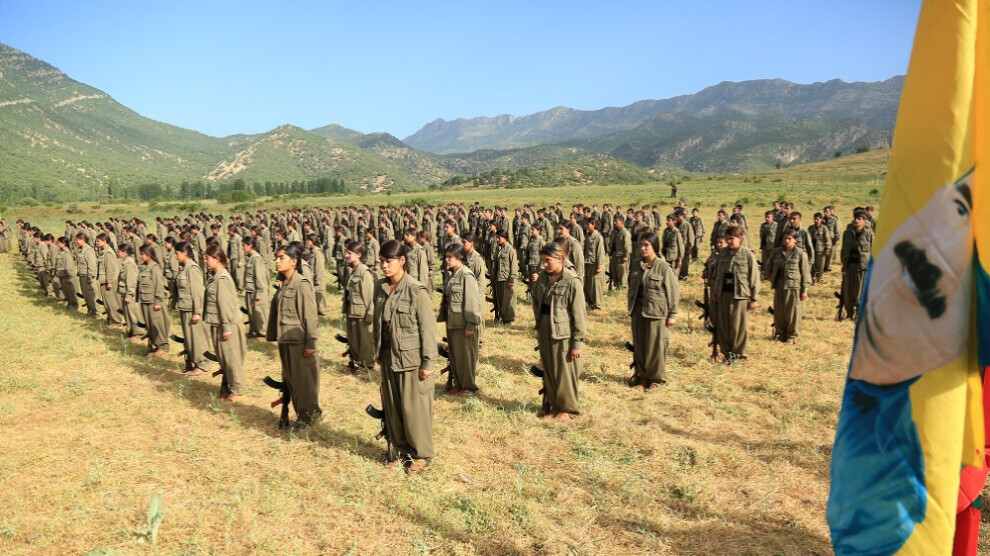HPG commemorates the 21st anniversary of the “June 1 Offensive”
HPG released a statement on the 21st anniversary of the June 1 Offensive, which is considered a strategic turning point in the Kurdish freedom struggle.
HPG released a statement on the 21st anniversary of the June 1 Offensive, which is considered a strategic turning point in the Kurdish freedom struggle.

The 1 June offensive in 2004 represents a historic turning point for the Kurdish freedom movement. After a deep crisis, attempts to dismantle the PKK from within and a comprehensive restructuring, a renewed PKK entered the stage of world history on 1 June 2004 with a wave of actions. Five years earlier, the crisis of the freedom movement had been heralded by the abduction of its leader, Abdullah Öcalan, in an international conspiracy. Subsequently, patriarchal, pro-imperialist, feudalist forces tried to hijack and destroy the freedom movement. However, through the resistance of the Kurdish movement in the mountains and of Abdullah Öcalan on the prison island of Imrali, the PKK was able to renew itself and spread a genuine, anti-authoritarian alternative to capitalist modernity with the model of democratic confederalism. Thus, 1 June became an important commemoration day for the Kurdish freedom movement.
The Media and Communication Center of People's Defense Forces (HPG) published a detailed statement on the 21st anniversary of the “June 1 Offensive” honoring the start of the guerrilla offensive in 2004 as a historic milestone in the freedom struggle of Kurdistan.
The statement said that the offensive was a direct response to the annihilation attacks that intensified after the international conspiracy against Abdullah Öcalan, as the Kurdish population refers to the abduction of the PKK founder from Kenya to Turkey in February 1999, which was contrary to international law. Despite a five-year unilateral ceasefire between 1999 and 2004, the Turkish government used the process “to crush the movement” instead of taking steps toward a democratic solution to the Kurdish question.
“The June 1 offensive was a necessary response to the prevailing policy of denial, destruction, and military escalation at the time,” the statement said, honoring the commitment of numerous commanders and fighters who gave their lives for this strategic shift—namely Hüseyin Mahir, Erdal, Nûcan Nurhak, Adil Bilikî, Çiçek Kiçî, Mahir Dêrsîm, Kendal Baz, Nûda Karker, Rojîn Gewda, Reşît Serdar, Mehmet Goyî, Dîcle Efrîn, Simko Rojhilat, Atakan Mahir, Delal Amed, Gulçiya Gabar, Fazıl Botan, and Leyla Sorxwîn Amed.
The HPG statement underscored the political philosophy and line of Abdullah Öcalan, whose ideas and new paradigms have retained their influence on armed and political resistance to this day, despite the most adverse circumstances, in particular his isolation in solitary confinement on the Turkish prison island of Imrali. The HPG pointed out that the experiences of the last two decades confirm the correctness of this course:
“Our history shows that whenever we have consistently implemented Rêber Apo's (Leader Abdullah Öcalan’s) approach, we have been able to achieve significant successes,” the statement continued. HPG stated that the guerrilla forces emphasized their willingness to continue fighting “with sacrifice and determination for the freedom of the Kurdish people.”
The statement concluded: “On the 21st anniversary of the June 1 offensive, we renew our commitment to Rêber Apo, our movement, the people, and all those who have fallen—with the goal of achieving new successes in the 22nd year of the struggle.”